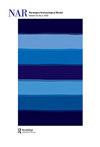消除罪恶和播种治愈:发展欧洲中石器时代殖民地的对话
IF 1.1
3区 历史学
0 ARCHAEOLOGY
引用次数: 0
摘要
我们要感谢所有受访者对我们提出的问题的思考,以及他们对各种批评观点的建设性框架。我们发现这些回应是积极和有用的,考虑到我们的立场明显存在分歧,这有点令人惊讶!对于那些关注这篇文章的人来说,我们应该立即清楚地看到,在中石器时代考古的非殖民化方法的效用问题上,我们已经巧妙地分裂了我们的听众。Glørstad和Nilsson Stutz认为,殖民批判的视角不适合对欧洲中石器时代的批判性反思,而Porr、Pitcher和Tiwari则相反。当然,各作者所采取的立场来自于他们不同的知识和经验立场。这种意见的广度说明了一个我们尚未直接解决的潜在动态,即立场。受访者专业背景的多样性极大地丰富了这场辩论,同时也暗示了对我们的方法反应不一的原因。难怪种族社会学家、有欧洲以外后殖民研究经验的中石器时代研究人员、印度史前史专家以及欧洲一家主要博物馆的馆长会对殖民遗产有着截然不同的经历,并对围绕他们的广泛学术文献和分析有着不同的参与?我们还应该强调,职位可以比我们的职业生涯延伸得更远。作为作者,我们将在这里开放。除了我们的学历之外,我们是两个英国(至少从背景来看)中年中产阶级白人,他们在许多方面都因我们现在试图揭露和解构的霸权而享有不成比例的特权。因此,我们完全同意Nilsson Stutz通过Táíwå(2022)提出的观点,即社会正义话语的危险倾向最终会被那些缺乏不平等或压迫直接经验的人所挪用。我们很感激能够在中石器时代研究中开始这场对话,并很高兴看到来自不同背景的其他人推动这场对话向前发展,包括在最近和即将举行的会议上。然而,我们要强调的是,中石器时代研究中的特权从根本上是相对的,并重申需要关于我们研究界组成的强有力的人口统计数据,然后再深入讨论谁应该和不应该成为这一领域的前沿和中心本文章由计算机程序翻译,如有差异,请以英文原文为准。
Unsettling Sin and Seeding Healing: Developing the Conversation Around Coloniality in the European Mesolithic
We wish to thank all the respondents for their thoughts on the issues we have raised, and the constructive framing of their various points of critique. We found the responses positive and useful, which is somewhat surprising given the demonstrably divisive nature of our position! It should be immediately apparent to those following this discourse that we have neatly split our audience over the utility of a decolonial approach to Mesolithic archaeology. Glørstad and Nilsson Stutz posit that the lens of colonial critique is ill-suited to critical reflection on the European Mesolithic, whilst Porr, Pitcher and Tiwari argue to the contrary. Of course, the position adopted by the respective authors emerges from their different positions of knowledge and experience. This breadth of opinions speaks to an underlying dynamic that we have not, as yet, addressed directly, that of positionality. The diversity in the professional backgrounds of our respondents vastly enriches this debate, whilst also hinting at the source of the mixed response to our approach. Is it any wonder that sociologists of race, Mesolithic researchers with experience of engagement with postcolonial studies outwith Europe, specialists in Indian Prehistory, and the director of one of Europe’s major museums would have wildly different experiences of colonial legacies and engage differentially with the extensive academic literature and analysis which surround them? We should also stress that positionality can be extended further than our professional lives. As authors, we will be open here. Beyond our academic qualifications, we are two British (at least by background), middle-aged, middle-class white men who in many, many respects have been disproportionately privileged by the hegemonies that we now seek to expose and deconstruct. As such, we wholeheartedly agree with Nilsson Stutz’s point, via Táíwò (2022), regarding the dangerous tendency of social justice discourse to be ultimately appropriated by those who lack direct experience of inequality or oppression. We are grateful to have been able to start this conversation within Mesolithic studies and are delighted to see others from different backgrounds push this discourse forwards, including in sessions at recent and forthcoming conferences. We would, however, stress that privilege within Mesolithic research is fundamentally relative and reiterate the need for robust demographic data on the make-up of our research community, before diving into a more expansive discussion over who should, and should not, be front and centre within this
求助全文
通过发布文献求助,成功后即可免费获取论文全文。
去求助
来源期刊

Norwegian Archaeological Review
ARCHAEOLOGY-
CiteScore
2.10
自引率
0.00%
发文量
13
期刊介绍:
Norwegian Archaeological Review published since 1968, aims to be an interface between archaeological research in the Nordic countries and global archaeological trends, a meeting ground for current discussion of theoretical and methodical problems on an international scientific level. The main focus is on the European area, but discussions based upon results from other parts of the world are also welcomed. The comments of specialists, along with the author"s reply, are given as an addendum to selected articles. The Journal is also receptive to uninvited opinions and comments on a wider scope of archaeological themes, e.g. articles in Norwegian Archaeological Review or other journals, monographies, conferences.
 求助内容:
求助内容: 应助结果提醒方式:
应助结果提醒方式:


